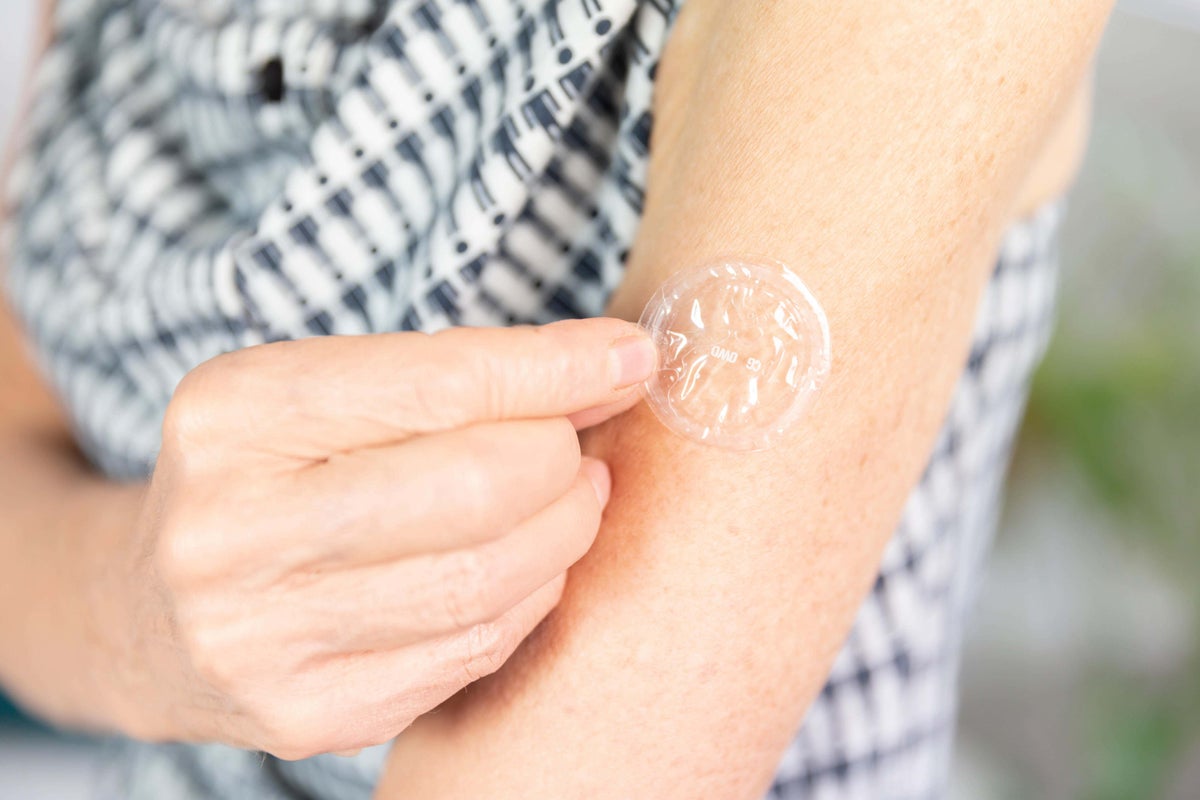
Hormone replacement therapy (HRT) may help prevent Alzheimer’s disease in women at risk of developing the condition, researchers have suggested.
A team said the use of HRT, which helps control symptoms of the menopause, is associated with better memory, cognitive function and larger brain volumes in later life in women carrying a gene called APOE4.
About a quarter of women in the UK are thought to carry the APOE4 gene and Alzheimer’s is more common in women than men.
APOE4 is the strongest risk factor gene for Alzheimer’s disease, although inheriting APOE4 does not mean someone will definitely develop the condition.
In a new study, researchers found that HRT was most effective when given during perimenopause – where symptoms build up months or years before periods actually stop – and could lead to brains that appear several years younger.
In addition to living longer, the reason behind the higher female prevalence is thought to be related to the effects of menopause and the impact of the APOE4 genetic risk factor being greater in women— Professor Anne-Marie Minihane, UEA
Professor Anne-Marie Minihane, from UEA’s Norwich Medical School, who led the study with Professor Craig Ritchie at the University of Edinburgh, said: “We know that 25% of women in the UK are carriers of the APOE4 gene and that almost two thirds of Alzheimer’s patients are women.
“In addition to living longer, the reason behind the higher female prevalence is thought to be related to the effects of menopause and the impact of the APOE4 genetic risk factor being greater in women.
“We wanted to find out whether HRT could prevent cognitive decline in at-risk APOE4 carriers.”
The experts studied data from 1,178 women taking part in the European Prevention of Alzheimer’s Dementia initiative, which was set up to study participants’ brain health over time.
The project, which involved 10 countries, tracked the brains of a total of 1,906 people over 50 who did not have dementia at the start of the study.
For the latest research, experts looked at the results of cognitive tests and brain volumes as recorded by MRI scans.
The effects of HRT in this observation study, if confirmed in an intervention trial, would equate to a brain age that is several years younget— Dr Rasha Saleh, UEA’s Norwich Medical School
The results showed that APOE4 carriers who also used HRT had better cognition and higher brain volumes than people not on HRT and non-APOE4 carriers.
Dr Rasha Saleh, from UEA’s Norwich Medical School, said: “We found that HRT use is associated with better memory and larger brain volumes among at-risk APOE4 gene carriers.
“The associations were particularly evident when HRT was introduced early – during the transition to menopause, known as perimenopause.
“This is really important because there have been very limited drug options for Alzheimer’s disease for 20 years and there is an urgent need for new treatments.
“The effects of HRT in this observation study, if confirmed in an intervention trial, would equate to a brain age that is several years younger.”
An effect on both cognition and brain changes on MRI supports the notion that HRT has tangible benefit— Prof Craig Ritchie, University of Edinburgh
Prof Minihane said the team did not look at dementia cases, but that cognitive performance and lower brain volumes are predictive of future dementia risk.
Prof Michael Hornberger, from UEA’s Norwich Medical School, said: “It’s too early to say for sure that HRT reduces dementia risk in women, but our results highlight the potential importance of HRT and personalised medicine in reducing Alzheimer’s risk.
“The next stage of this research will be to carry out an intervention trial to confirm the impact of starting HRT early on cognition and brain health. It will also be important to analyse which types of HRT are most beneficial.”
Prof Craig Ritchie, from the University of Edinburgh, said the study, shared exclusively with the PA news agency, ” supports the notion that HRT has tangible benefit”.
He said it “highlights the need to challenge many assumptions about early Alzheimer’s disease and its treatment, especially when considering women’s brain health”.
These findings, based on analysing data from women who took part in a large study that followed nearly 2,000 people since 2015, are encouraging but need to be confirmed in subsequent studies— Dr Sara Imarisio, Alzheimer’s Research UK
Dr Sara Imarisio, head of strategic initiatives at Alzheimer’s Research UK, said: “These findings, based on analysing data from women who took part in a large study that followed nearly 2,000 people since 2015, are encouraging but need to be confirmed in subsequent studies.
“They provide evidence that HRT could have some cognitive benefits, particularly in women who carry the APOE4 Alzheimer’s risk gene.
“The next step is to investigate this in more detail. Importantly, this study didn’t measure whether women went on to develop dementia.
“So, its findings need to be confirmed, first in trials that directly test whether giving HRT affects women’s cognitive abilities and changes in their brain, particularly carriers of the APOE4 gene.
“This will then help pave the way for finding possible interventions, for example clinical trials to see if it could eventually prevent dementia, and to help understand why dementia disproportionately affects women in the UK.
“Studies like this are helping piece together how various risk factors for dementia, such as our age, genetics and the menopause, could combine to influence a person’s risk of developing diseases like Alzheimer’s.”
Dr Richard Oakley, associate director of research at the Alzheimer’s Society, said: “Studies of this kind are important as they hint at a link between HRT and the changes to the brain.
“We need more studies, on a larger scale, to better understand this link.”
The study was published in the Alzheimer’s Research & Therapy journal.







